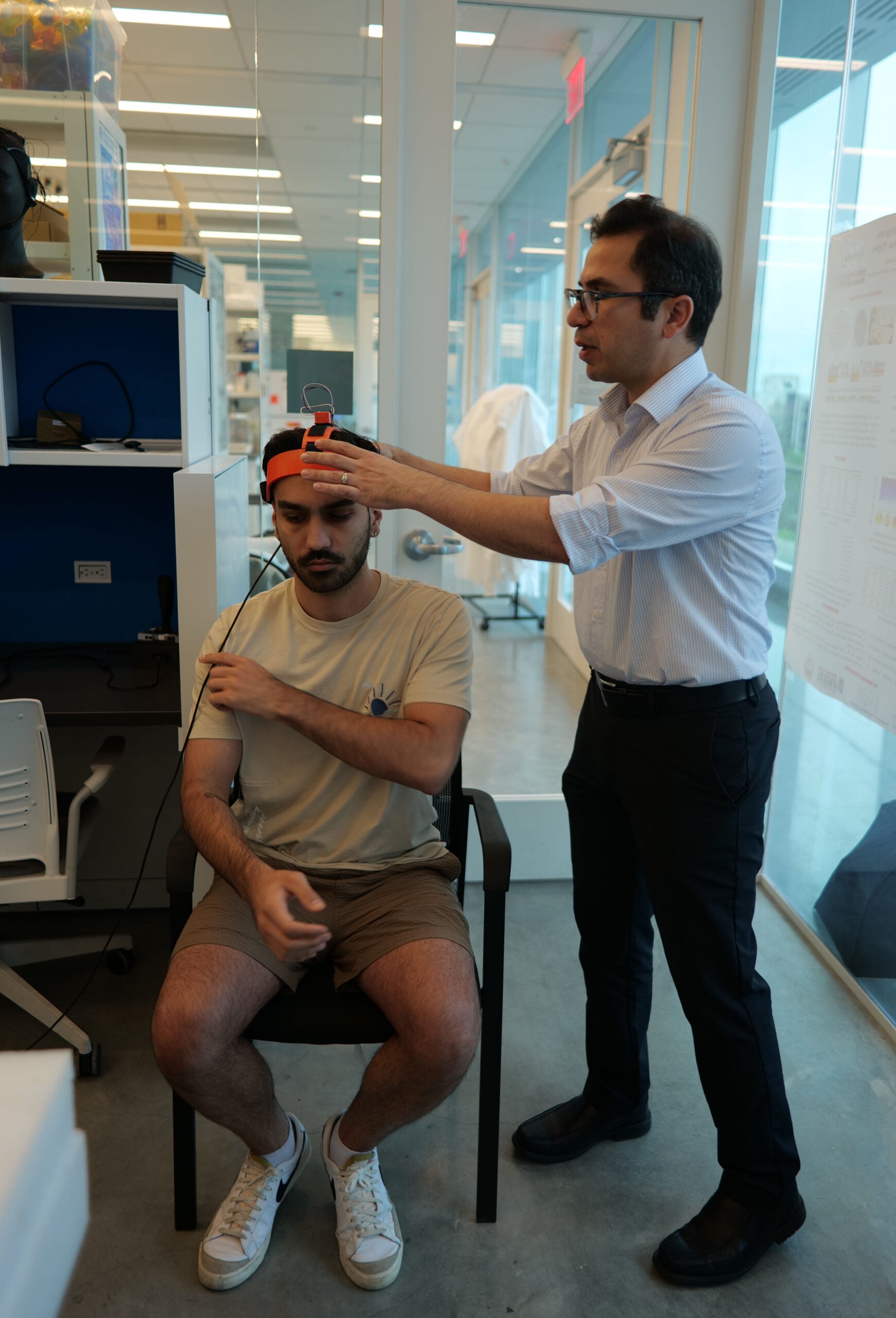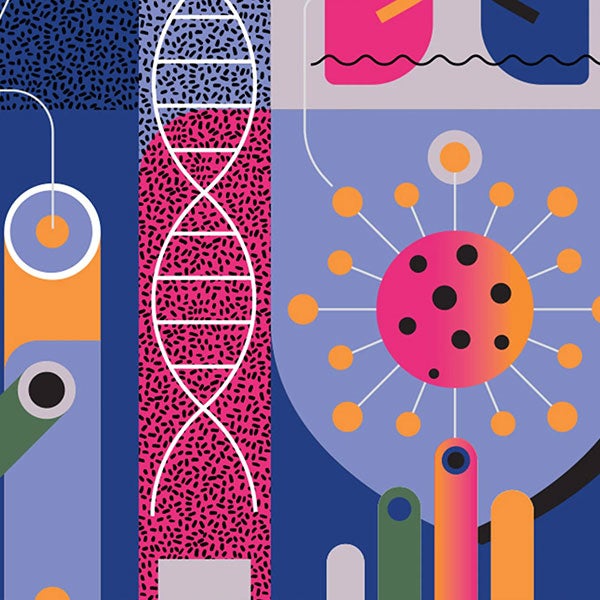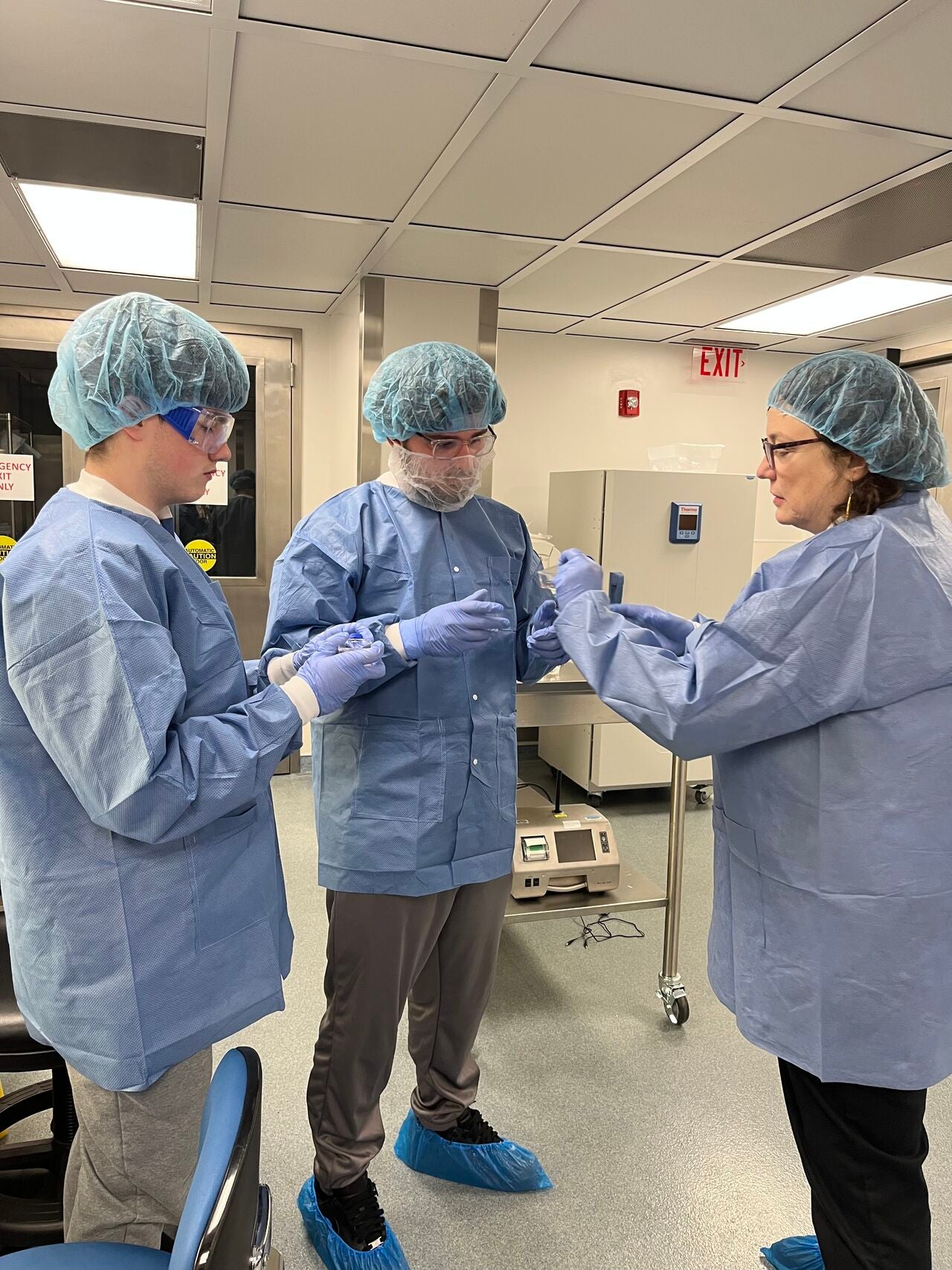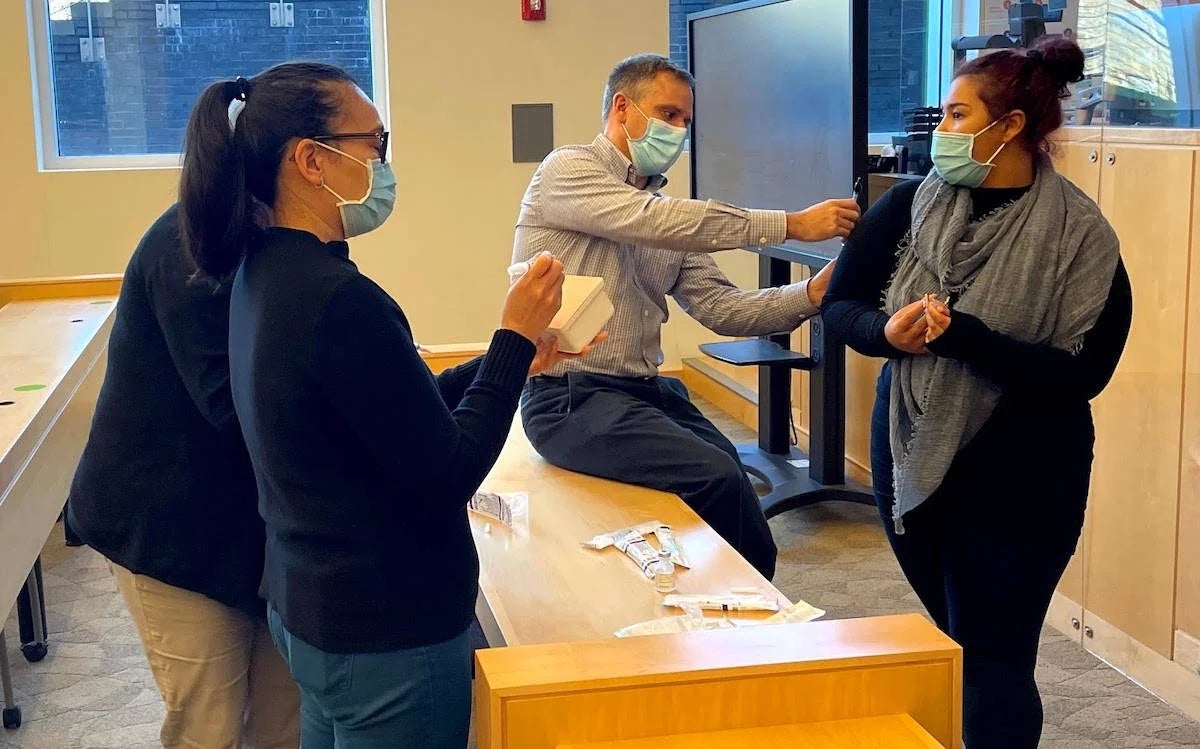URI engineering professor recipient of NSF CAREER Award for assistive rehabilitation research
KINGSTON, R.I. – July 29, 2025 – Severe motor impairment such as paralysis and degenerative conditions can limit a person’s ability to perform certain dexterous tasks. Currently, there are technological advancements that can aid in restoring some of this ability, but they can be invasive, requiring surgical implants that create drawbacks. University of Rhode Island assistant professor Reza Abiri was recently awarded a National Science Foundation CAREER Award for the development of novel shared autonomy multimodal artificial intelligence to achieve comparable levels of dexterous manipulation using fully noninvasive, human-centered technologies.
The award, titled “Versatile and high-performance shared autonomy paradigms for assistive and rehabilitation robots,” aims to develop a noninvasive intelligent shared control framework with direct engagement from users that would enable individuals with severe motor impairments to interact with their environment more naturally and independently.
“I’m deeply honored to receive this recognition. The NSF CAREER Award is not only a significant personal milestone, but also a strong validation of my broader vision to make assistive robotics more accessible, intelligent, and human-centered through the development of novel AI algorithms,” said Abiri.

Abiri joined URI’s electrical, computer and biomedical department in 2021 and started his research laboratory on Translational Neurorobotics. He has a mechanical engineering Ph.D. focusing on controls and systems and is a Ryan research assistant professor of neuroscience. He was drawn to URI because of its multi-disciplinary programming and collaborative expertise and location to industry relevant to his work. His background research, including post-doctoral training at the University of California San Francisco, and UC Berkeley, is focused on developing both invasive and non-invasive AI-driven brain-machine interfaces to help stroke survivors and individuals with physical disabilities perform motor training or control robotic systems, such as third-limb interfaces.

This NSF CAREER Award builds on that foundation and represents a broader vision of his previous NSF grant awarded in 2023. In this new project, the aim is to amplify low-dimensional bio signals—such as those generated by simple head movements, muscle activity, or eye motions—into high-dimensional control commands for assistive robotic arms to interpret. The patient wears a headpiece connected to sensors that relay information based on head movements. The head movements signal the robotic arm to move left or right toward an object. A camera simultaneously sends information to the same system, using artificial intelligence to determine perception and environmental factors and assist in grasping, lifting, and moving the object in real-time.
“Ultimately, we aim to empower individuals with paralysis to perform complex tasks, such as grasping and object manipulation, with a level of precision and responsiveness that rivals invasive systems,” said Abiri.

A particularly meaningful aspect of the CAREER program is its emphasis on education—this award will also allow Abiri’s team of researchers to translate their research into new knowledge, tools, and experiences that engage students at all levels.
This project actively involves mentoring both graduate and undergraduate students, who will contribute to the development and evaluation of AI algorithms and assistive robotic systems.
The award also supports a range of educational initiatives, including the creation of a new university course, annual hack-a-thon competitions where many people gather to engage in collaborative computer programming, and internship opportunities aimed at fostering early interest in human-centered robotics and AI to K-12 students. These outreach efforts are designed to extend participation and promote diversity in STEM fields.
The research will also involve many collaborative partnerships. “While the core research will take place within my lab, we have also teamed up with medical schools, rehabilitation centers, and robotics industry partners based in Rhode Island and Massachusetts to support real-world testing and technology translation,” said Abiri.
The $546,848 awardwillfund this projectover the next five years. The award brings the total NSF CAREER awards in the College of Engineering to six in the last five years.
This press release was written by Krysta Murray, a writer with the URI College of Engineering.
Latest All News
- Navigating health careIf you’ve had to find a primary-care provider or pay a medical bill lately, you know that accessing and paying for health care can be difficult. But why? How can we get the care we need?
- URI to host RI-INBRE Summer Research Symposium Aug. 1KINGSTON, R.I. — July 29, 2025 — About 200 students from 10 institutions across Rhode Island will present more than 100 biomedical research projects they’ve spent the summer studying, as RI-INBRE hosts its 21st annual Summer Undergraduate Research Symposium on Aug. 1. The Rhode Island IDeA Network of Biomedical Research Excellence program started in 2001, […]
- Head of URI’s Chinese language program new president of national teachers’ associationKINGSTON, R.I. – July 29, 2025 – Yu (Joyce) Wu, director of the Chinese Language Flagship Program and Chinese section head at the University of Rhode Island, has been elected president of the Chinese Language Teachers Association, USA, the largest professional organization devoted exclusively to the study of the Chinese language, culture and pedagogy. Wu, […]
- Novel discoveries about Eastern Whip-poor-will nesting and chick growthKINGSTON, R.I. – July 28, 2025 – Known for their haunting, distinctive singing—a repetitive “whip-poor-will” call that echoes through summer nights—Eastern Whip-poor-wills have long inspired folklore, often seen as omens or symbols of mystery. Their elusive, nocturnal nature and expert camouflage make them far easier to hear than to see. Liam Corcoran ’18 M.S. ’25, […]
- New graduate certificate in cell and molecular biology aims to fill needs in field while offering career advancement opportunitiesKINGSTON, R.I. – July 23, 2025 – Molecular biology, biomedical sciences, laboratory medicine, and biotechnology are among the most challenging and exciting scientific fields of the 21st century. These disciplines are at the forefront of efforts to overcome global public health challenges such as heart disease, cancer, and infectious disease. The University of Rhode Island’s […]
- URI College of Pharmacy trains pharmacy technicians to administer vaccinesKINGSTON, R.I. — July 23, 2025 — This summer, University of Rhode Island College of Pharmacy faculty and staff members are continuing their efforts to help fight communicable diseases through a training program on the Kingston Campus that teaches pharmacy technicians to administer vaccines. Originally developed by Washington State University and revised through a partnership […]












